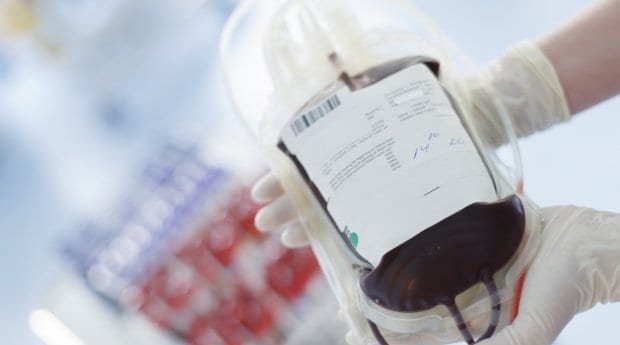Canada’s continuing ban on blood donations from men who have sex with men (MSM) — now 30 years old — has to go down as the most notable failure of an otherwise spectacularly successful LGBT rights movement in Canada.
There just isn’t a strong movement against the ban, despite evidence of its basis in superstition and prejudice rather than in the science of HIV risk. Our national LGBT rights organization, Egale, doesn’t even have information about the ban on its website.
So why isn’t there a strong movement against the ban? A few guesses:
The ban doesn’t hurt us
Although this may be one of the most flagrant examples of government-sanctioned anti-gay discrimination in Canada, no one will go hungry, lose their job or lose their home because they can’t donate blood. That doesn’t make it okay, but it certainly makes the blood ban seem less important compared to issues like trans rights, equal marriage, queer refugees and sex education.
But there are wider effects. Similarly motivated regulations ban organ and tissue donation from men who have sex with men, which can be a life-or-death issue: death, if someone in your family needs your kidney; life, if you want to use a surrogate to conceive a child — gay men can’t donate sperm legally, even as a “known donor,” without jumping through significant obstacles.
Maybe LGBT people think the ban is reasonable
It’s true that MSM account for half of all new HIV infections in Canada, and maybe the LGBT community just doesn’t understand how rigorously donated blood is screened in Canada.
But perhaps more recent trends are guiding gay men’s feelings on this. The mainstreaming of both barebacking and HIV may have swayed the community into believing that all gay men are inherently risky and that HIV is not to be feared.
Actually, even those who practise safe sex assume that every sexual partner potentially has HIV — if you wouldn’t let a gay man put his dick in your ass without a condom, why would you let him pump his blood into your veins?
The movement is inherently non-inclusive
Past campaigns to end the blood ban have basically endorsed Canadian Blood Services’ practice of establishing a hierarchy of sexual practices; they only demanded tweaks to the hierarchy. Typically floated proposals would still exclude people who engage in bareback sex, people who engage in promiscuous sex or are in non-monogamous relationships and, of course, people who are already HIV-positive.
If this movement is just for the benefit of monogamous, condom-using, HIV-negative gays, then it excludes and stigmatizes a huge segment of the community. And perhaps that’s not unreasonable — no one should be exposed to HIV against their will — but it’s still hard to square with how the community, especially its activists, likes to see itself as rebelling against heteronormative, monogamous, “clean” behaviour. Moreover, if the campaign just benefits the monogamous, HIV-negative, safe-sex-only gays, it has a very small pool of concerned parties.
But there’s more. Professor OmiSoore Dryden of Thorneloe University has been studying how Canada’s deferral policies discriminate in other ways. Anyone who’s taken money for sex, even once, since 1977 is banned. People who’ve had tattoos, piercings or electrolysis — all common in our community — are banned for six months. Anyone who was born in, has lived in, or has had sex with someone who was born in or has lived in Africa since 1977 is banned.
All of Africa. Permanently.
If we’re going to salvage the campaign to end the gay blood ban, it’ll require some major retooling.
First, we’ll need to broaden the scope of the movement, to build coalitions with other banned parties. That means ending the racist ban on African blood and the permanent sex-worker ban.
Second, education about the science of HIV risk, and ways that all people can mitigate that risk, must be central.
Third, the thrust of the campaign should be reframed to include the more problematic bans on organs, tissue and sperm.
Finally, the community needs to be sold on the wider benefits of a behaviour-based ban that discriminates against the promiscuous and HIV-positive: increased potential access to other medical services and elimination of a pernicious stereotype. This may be difficult, but it is similar to the strategy the equal marriage movement took.
The LGBT community has had great success in Canada when it was united and loud. And with both the Liberals and NDP calling for an end to the gay blood ban, the next few years could be key to ending this discrimination if we get organized around a strong call to action.


 Why you can trust Xtra
Why you can trust Xtra


